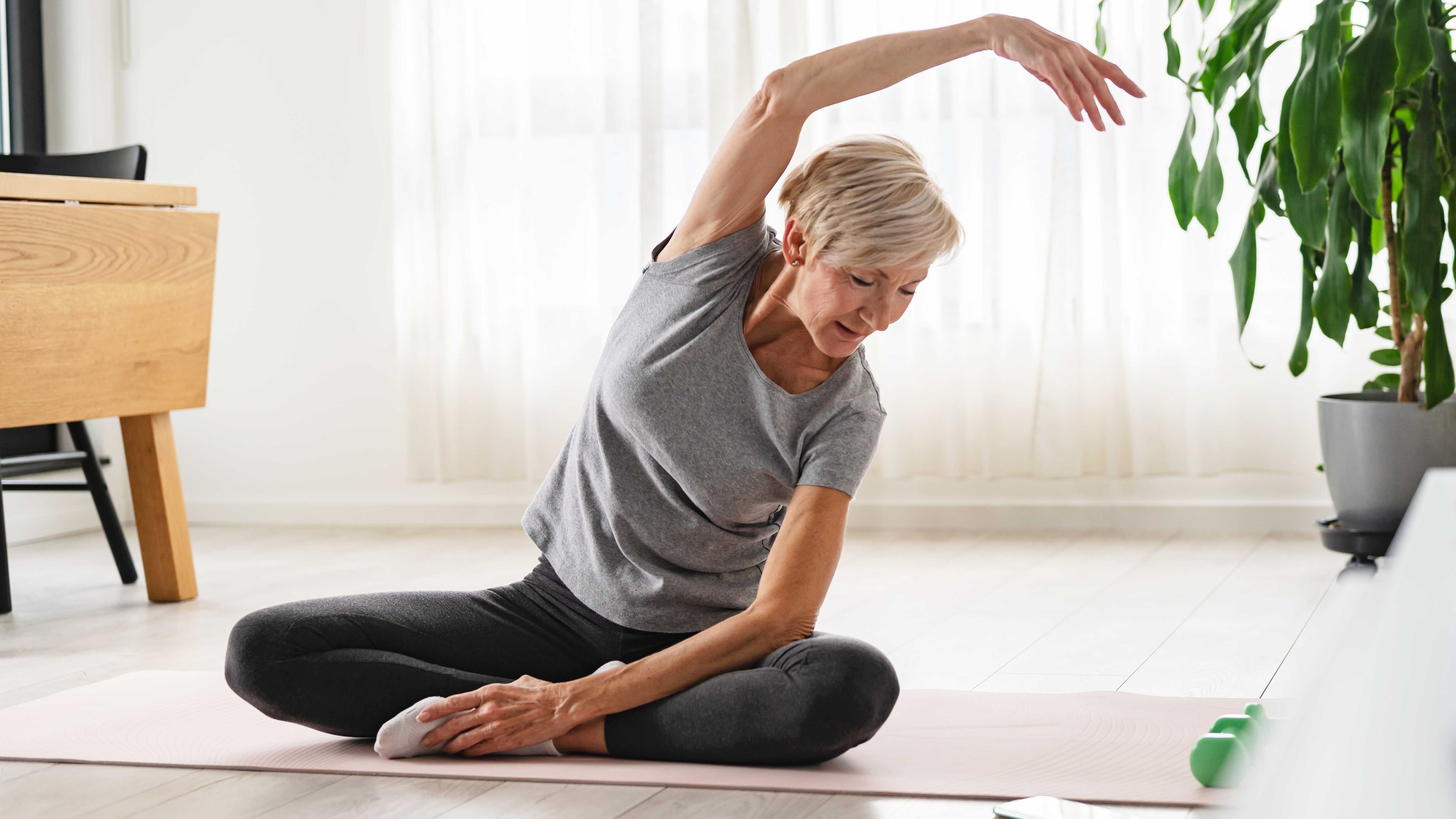
Shebah Carfagna is talking to me as she works to recover her mobilty and her health following a second successful hip replacement. It would be a difficult prospect at any point in life but at 68 years old, Carfagna is stronger than ever.
“My journey hasn’t been an easy script," she tells me. "As a single mom raising a son with autism while managing a demanding corporate career, life handed me more than enough stress to derail me. However, I refused to let hardship define me. Instead, I chose to turn every challenge into fuel.”
Carfagna left her corporate job 25 years ago to work in the fitness industry. She has since earned over 15 fitness certifications and co-founded the Ageless Workout Method, championing resilience, mental toughness, and holistic wellness. She is also a 2025 AARP Senior Planet Sponsored Athlete.
Below, she shares her advice with Tom’s Guide readers, wherever they are in their fitness journeys, as well as her exact hip mobility workout she’s using to rebuild strength following her hip replacement. As always, if you’re a complete beginner or you’re returning to fitness following an injury, it’s always a good idea to seek advice from a qualified professional.
What is the workout?
Carfagna had her second hip replacement 48 days ago. “Pain management and progress are inseparable,” she tells me.
Her day starts with five minutes of mobility exercises while her morning coffee brews — “ankle circles, seated marches, and arm swings.” She says these are “small acts with a big impact.”
Next up is her 10-15 minutes of strength and resistance training:
- Supported squats to a chair
- Wall or countertop push-ups
- Resistance band rows or deadlifts
- Standing hip abductions and gentle leg extensions
- Core breaths and pelvic tilts, standing or seated
Finally, she’ll end her workout with either a minute of focused breathing and mindfulness or a coordination drill, such as balancing on one leg with wall support, then switching sides.
“I don’t let my conditions manage me….. I manage them. Every ache, triumph, and challenge is part of my legacy—not an excuse to step back, but a reason to step forward.”
To increase the intensity, add a set of the best adjustable dumbbells, or some of the best resistance bands, to the exercises.

What is your advice for beginners?
“If you’re just beginning, my advice is simple: start where you are. Walk, stretch, breathe, and show up for yourself—consistently. Progress is born from small steps, repeated with intention,” says Carfagna.
“Train your mind as much as your body. Incorporate coordination drills, practice silence, embrace mindfulness—because neuroplasticity is your lifelong ally. And please, don’t wait for a crisis to build strength.”
Follow Tom's Guide on Google News, or add us as a preferred source, to get our up-to-date news, analysis, and reviews in your feeds. Make sure to click the Follow button!
More from Tom's Guide
- At 71, I'm a fitness coach. Here's the workout I swear by for strength and mobility
- I'm a coach with over 6 years' experience in mobility — here's 3 exercises I prefer over stretching to build strong hips
- I’m 72 years old — here’s the simple bodyweight workout I do to build strength and mobility with just 5 exercises







